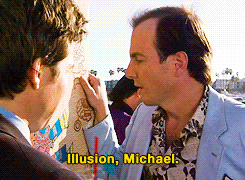Hypnosis is the art of planting thoughts into the minds of others. Hypnotists are also known by the name of mesmerists.
Hypnosis is divided into a variety of categories, based on the kind of inductions the hypnotist uses in his or her job. Jon Finch, for example , sometimes , employs hypnosis to be able to read minds, for entertainment purposes. Finch’s skills involve suggestion, ideomotor action, somnambulism, visualization.
Hypnosis refers to a state of human consciousness involving focused attention as well as a decrease in peripheral awareness, as well as an increased capacity to react to suggestion. It could be used to describe the art, technique, or act of inducing an illusion.
Theories explaining what occurs during hypnosis are divided into two types. Theories of altered states view that hypnosis is an altered state of mind, or trancethat is characterized by a level of awareness different from the ordinary conscious state. In contrast, ‘nonstate’ theories consider hypnosis to be a form of imaginative performance.
The most well known method of mesmerism is to peek at goals using suggestion, but other forms are often included.
When hypnotized, a person is said to have heightened concentration and focus. The focus is narrowed to the subject that is in front of themThe person who is hypnotized seems to appear to be in trance or sleep, with an increased capacity to respond to suggestions. The person may be able to experience partial amnesia, which allows them to forget things or disconnect from former or current memories. They are also said to show an increased response to suggestions, which could explain why the person could enact activities outside of their usual behavior patterns.
Certain experts believe that the susceptibility to hypnotics is linked to personality traits. Highly hypnotizable individuals with psychopathic, narcissistic, or Machiavellian personality features may find that hypnotic experiences are more like being controlled by someone else rather than being in control. But, those with an altruistic nature will possibly remember and absorb suggestions more easilyand act upon their suggestions with confidence, without fearing for their safety.
Theories describing the hypnotized state explain it in various ways as a state that is characterized by high intensity and attentional focusand fluctuations in brain function, levels of consciousness, or dissociation.
In pop culture, the word “hypnosis” often brings to mind stereotypical portrayals of stage hypnosisinvolving a showy transformation from an awake state into the state of trance, typically marked with the subject’s arm dropping hypnotically to their side, with the idea that they are drunk or sleepy, and a subsequent demand that they do something. Stage hypnosis is usually done by an entertainer who plays the role of the person who hypnotizes. The subject’s compliance is enacted through putting them into a state of trance where they are willing to listen and accept the advice given to them.
“Hypnosis,” as a verb, is used to describe “hypnosis” can be used to describe non-state phenomenon. It is also believed that the results observed in hypnotic induced states are examples of classical conditioning, and responses learned through prior experience using the hypnotic process. However, it is generally acknowledged within the field that in artificially-induced states with high suggestibility (known as trance logic)there is a high degree of language, logic, and cognitive functioning that behaves normallyeven though it could be highly concentrated. This paradoxical effect has been theorized to be due to two interconnected processes operating in opposition: one becoming more focused, the other process becoming less focused. The hypnotic subject is able to experience a narrowing of their focus, yet simultaneouslyit is able to concentrate on matters that relate to the suggestion made by the hypnotist.
There are a variety of theories regarding what is actually happening within the brain when a person is hypnotized. However, there seems to be some agreement that it is the result of a focus concentration and a state of altered consciousness.

The majority of people who experience hypnosis are more likely to experience their focus narrowed down, focusing on the area of the brain in which the voice of the hypnotist emanating from. This causes a heightening of attentional processes, by shutting out other sensory information. Hypnotized people are able to focus intensely on the desired behaviour, but they are capable of performing actions that are not in line with their usual behavior patterns. The intense concentration leads to an altered state in the brain.

